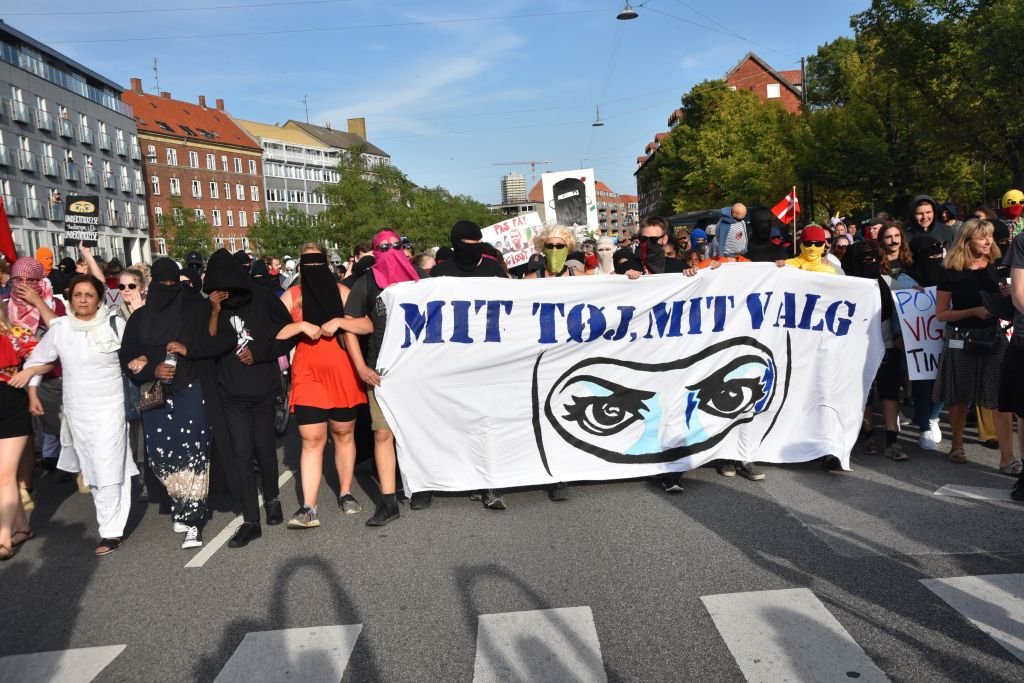
"My clothes, my choice"
— AJ+ (@ajplus) August 1, 2018
Hundreds protested Denmark’s new ban on face-covering garments, which they say promotes anti-Muslim and anti-immigrant sentiment. @amnesty called the law "a mockery of the freedoms Denmark purports to uphold." pic.twitter.com/qXDiDsJITY
The law caused protests and criticism from human rights groups. On 2nd August, protesters gathered in Copenhagen to demonstrate against the law, with women wearing traditional burqas and veils standing alongside people with makeshift coverings. Protesters accuse the law of infringing on women’s rights to dress as they choose and of discriminating against Denmark’s Muslims. Amnesty International's Deputy Director for Europe, Fotis Filippou, stated:
“the law criminalises women for their choice of clothing, making a mockery of the freedoms Denmark purports to uphold.”
Amnesty International's Europe Director Gauri van Gulik said:
"Whilst some specific restrictions on wearing of full-face veils for the purposes of public safety may be legitimate, this blanket ban is neither necessary nor proportionate and violates the rights to freedom of expression and religion."
Given the relatively small number of Muslim women in Denmark who actually wear the niqab, critics regard the law as largely a concession to increasing anti-immigrant sentiment in the country.
Under the law, police will be able to instruct women to remove their veils or order them to leave public areas. The country’s justice minister, Søren Pape Poulsen, said police officers would fine them and tell them to go home. On Friday 4th August, the first fine was issued to a 28-year-old woman wearing a niqab in a shopping centre in Horsholm, in the north-eastern region of Nordsjaelland.
Expression
On 31st May 2018, Danish lawmakers approved a new law that bans garments that cover the face, providing that "anyone who wears a garment that hides the face in public will be punished with a fine". Fines range from 1,000 Kroner ($157) for first-time offenses, and up to 10,000 Kroner for repeat offenses. The law does not ban headscarves, turbans or the traditional Jewish skull cap. The law is popularly referred to as the "burqa ban" and is mostly seen as being directed at the dress worn by some Muslim women. In enacting the ban, Denmark joins Austria, France and Belgium which have passed similar laws in what some politicians say is upholding secular and democratic values.